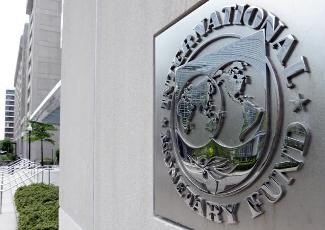Sudan says IMF recommendations on subsidies not binding
November 8, 2012 (WASHINGTON) – The Sudanese government on Thursday pushed back against recommendations made by the International Monetary Fund (IMF) on subsidies saying it is not binding to Khartoum.

The move was made to curb the widening budget deficit which resulted from losing oil as the main economic lifeline in the wake of South Sudan independence in July 2011. The south contained the bulk of the oil reserves that helped fuel the economic boom in Sudan over the last decade.
But despite the belt-tightening and unpopular measures undertaken by Khartoum, which also included reducing government ministries on state and federal level, Sudanese officials warned that more is needed to lift the country’s ailing finances.
The IMF seemed to share the same assessment saying that it wants Sudan to enhance tax policy and revenue administration “by reducing tax exemptions and improving tax compliance”. It also urged the East African nation ” to pursue the phasing-out of subsidies and develop a well targeted safety net system. It also recommends imposing a profit tax on gold producers as the sector develops”.
However the Sudanese state minister of finance Abdel-Rahman Dirar downplayed the advise which raised concern among the general public on the possibility of seeing further increases in prices.
Dirar noted in statements carried by the government sponsored Sudanese Media Center (SMC) that Khartoum already slashed subsidies in June.
Analysts say that Sudan has limited options in addressing the current economic crisis due to U.S. comprehensive sanctions imposed since 1997, its inability to borrow from international funds because of more than $40 billion in debt and reluctance of oil-rich Arab states to inject desperately needed cash into the government coffers.
Critics say that Khartoum has forfeited an opportunity to use the oil wealth to develop other sectors of the economy such as agriculture and manufacturing. Sudan appears keen however on focusing on new exploration efforts to increase oil production which currently stands at around 120,000 barrels per day (bpd).
IMF also warned that Sudan’s oil production will likely drop which casts doubt over projections made by oil minister Awad Al-Jaz this year that the country will reach 180,000 barrels bpd in the first quarter of 2013.
“[O]wing to waning mature fields (higher quality Nile blend) and other technical production problems, 2012 production is expected to sharply decline by 60 percent to 117 to 120 thousand barrels per day (bpd),” said the IMF report.
“Enhanced recovery in existing fields and further exploration will likely help production to increase again starting in 2013, with a peak expected in 2020 at near 240 thousand bpd, before a gradual decline to about 144 thousand bpd begins in 2030”.
But the IMF carried good news for Sudan as it forecasted an annual increase of 3% in gold production through 2020 before declining at same rate after 2026. It noted that Sudan’s gold exports tripled since 2009.
In a response attached to the report Sudanese authorities expressed reluctance on implementing some of the recommendations particularly related to widening tax base.
“My authorities recognize that gold and agricultural sectors are potential sources of raising tax revenue. However, at the moment, they fear that imposing taxes may result in smuggling of gold, and consequently loss of foreign reserves, as the sector is presently dominated by small artisans. In addition, imposing agricultural tax is not considered appropriate as it would mean taxing the poor who derive their livelihood from agriculture”.
Sudan also stressed that it is committed to a “flexible exchange rate regime “but prefer a gradual and comprehensive approach to avoid escalating inflation”.
The central bank devalued the pound last July by almost halving its value to try bridge a gap to the black market rate, which has become the benchmark for companies. It currently stands around 6 pounds for the dollar in the black market.
The IMF said the devaluation helped ease pressure on Sudan’s foreign exchange reserves which stood at about $1.3 billion which covers a little under two months of imports.
As the currency remained weak, annual inflation hit 45.3 percent in October compared to September, which is more than double the level of a year earlier.
The IMF underscored the gravity of challenges faced by the Sudanese economy.
“The economic situation is expected to continue to be difficult during the next 18 months (2012–13), clouded by the impact of South Sudan’s secession and tight financing constraints” the IMF said.
The world financial body also warned that increased military tensions along the borders with South Sudan could lead to increase military spending thus hurting the budget.
Sudan’s GDP is projected to shrink by -11.1% this year and -0.6% in 2013 according to IMF figures.
(ST)
